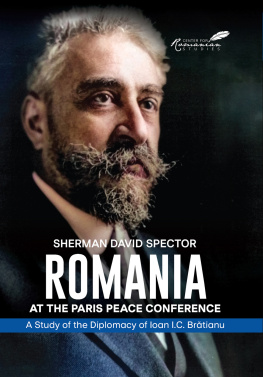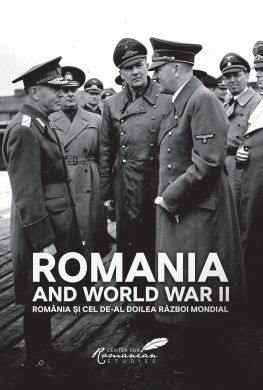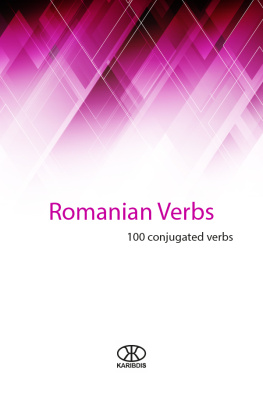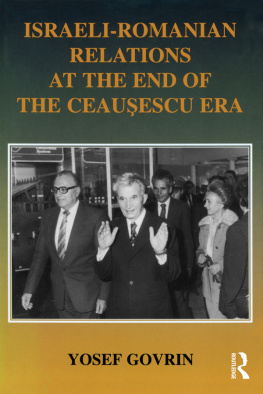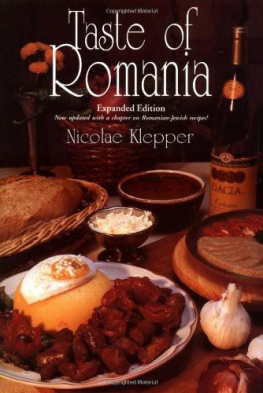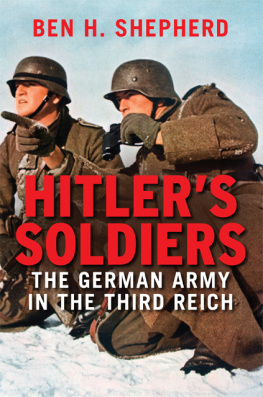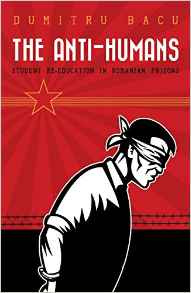Acknowledgments
Although the researching and writing of this book was a solitary endeavor, I did not do it in solitude. I could not have completed my goal without the invaluable assistance of others along the way. To start, I must thank my mentor, Roger Reese, who provided prompt feedback on chapters and insightful responses to questions. He held my work to a high standard, and I know my skills as a historian markedly improved because of it. Roger represents the epitome of professionalism that I try to emulate as a historian. I am also indebted to Adam Seipp, Brian Rouleau, and Stjepan Metrovi. They each provided important insights that shaped this book. I must thank colleagues in the Texas A&M University Department of History, who helped both at an individual level, in mapping out the chapter organization, and at an institutional level, in generously awarding me multiple research grants. These funded much of my work in archives and libraries in Romania and a visit to battlefields and Holocaust sites in Romania, Moldova, and Ukraine in 2018. I want to thank Michelle Kelso for organizing the Ukrainian part of that tour, offering me feedback on excerpts of manuscript chapters, and being a good friend. Additionally, I received a Fulbright Award funded by the United States Department of State and the Romanian Ministry of Foreign Affairs. I could not have completed the most central part my research without it. I want to specifically thank the Romanian-US Fulbright Commission American program director, Mihai Moroiu. My wife and I appreciate his help facilitating our transition to living in Romania and lending us support during my emergency surgery in country. I also received the Norman Raab Foundation Fellowship at the Jack, Joseph, and Morton Mandel Center for Advanced Studies at the United States Holocaust Memorial Museum, which allowed me to finish researching and writing my manuscript. Moreover, many thanks to Steve Feldman for his assistance during the book proposal stage and the Emerging Scholar Program at the Mandel Center for its generous help publishing this book. I am grateful to all the archivists, librarians, curators, and other staff of the various archives and libraries who assisted me over the years. I want to express special thanks to Sorin Bobrla and Luminia Dumitru, who kept my table in the reading room of the Romanian National Military Archives piled high with records; Carla Dua, who helped me decipher the handwriting in diaries and memoirs at the National Military Museum Library; and Mirel Berechet, who enabled me to obtain permissions to use illustrations from the Romanian Academy Library despite its closure to the public during the COVID-19 pandemic. I owe a special debt of gratitude to the National Association of War Veterans for its help finding veterans of the Second World War for me to interview and often providing me space to hold the interviews. I am thankful to each of the veterans who made time to meet with me to discuss their experiences in the war. I must remember Victoria Gorzo. This spry septuagenarian provided me room, board, and hours of fun conversation during earlier research trips to Romania when I conducted my first interviews with veterans. I am pleased to have made the acquaintance of Greg Kelley, a retired librarian with a great interest in Romania during the Second World War and a personal collection containing several hundred volumes on the subject. He kindly provided me an annotated bibliography to look for new sources, gifted me several boxes of materials, and loaned me a rare book. Unless otherwise indicated, I translated the Romanian sources quoted in this book, but I did request help with some particularly difficult passages. I especially must thank tefan Vizante for always being willing to look over my translations. I cannot forget Stephan Lofgren, my supervisor at the US Army Center of Military History when I was working there, who took me to task about my writing style and grammar. I (re-)learned a lot from him about editing, which came in handy when it was time to work on this book. I also must recognize Rzvan Bolba, Mirel Eugen, Daniel Obreja, and Ioan Drban, who provided me wartime manuals, documents, and photographs in response to requests for information on the Romanian Army. I greatly appreciate the feedback on my manuscript from my outsider readers, and Cornell University Presss PreBoard and Faculty Board, whose comments allowed me to greatly improve the final version. I am thankful for my editors Emily Andrew, David Silbey, and Allegra Martschenko, who guided me through the complex publication process, and for my copy editors who spotted mistakes in style and helped polish my prose. A host of other friends and colleagues supported me in various ways, and I would like to mention just a few, in no particular order: Dallas Michelbacher, tefan Ionescu, Roland Clark, Lorien Foote, Vladimir Solonari, Dennis Deletant, Ionu Biliua, Radu Ioanid, Adrian Cioflnca, and Mioara Anton. Finally, I could not have finished this book without the support of my family, especially my wife. Lisa and I married just before I began this project, so she was with me every step of the way. She worked to help pay the bills, moved across the US, came with me to Romania, and gave birth to two children in the intervening years. I am so blessed to be loved by someone as amazing as Lisa. Of course, any mistakes in this book are my own. Similarly, the arguments and opinions within are mine alone and do not represent the views of the Romanian-US Fulbright Commission nor the United States Holocaust Memorial Museum.
Note on Terms
This book focuses on the Romanian Army; however, because that army collaborated closely with the German Army in combat and SS formations in the rear, the book includes some German terms. Common German terms such as fhrer, Luftwaffe, Reichskommissariat, or Einsatzgruppe have not been italicized. Italics are generally reserved for Romanian words. Furthermore, I use German euphemisms common during the Holocaust, such as the Jewish Question and Final Solution. This book prefers the unhyphenated antisemitism over the hyphenated anti-Semitism because Semite is an outdated term for an imagined monolithic Jewish race.
The book uses the term Gypsy to denote the Roma people in the text. I did not do this without careful consideration. Although the term Gypsy [ igan ] was and is used as a slur by Romanians, some contemporary Roma have reclaimed the term. Moreover, this was the term used in official Romanian reports at the time. Lastly, Romaand any of its common variations such as Romani or Romanyrisk being mixed up with Romanian by a reader who is unfamiliar with the history of the Roma or Romania. Consequently, Gypsy is used to make it clear who is being referred to. This in no way is meant to denigrate the Roma people. In fact, this book does its best to highlight this groups overlooked role in the Romanian Army.


